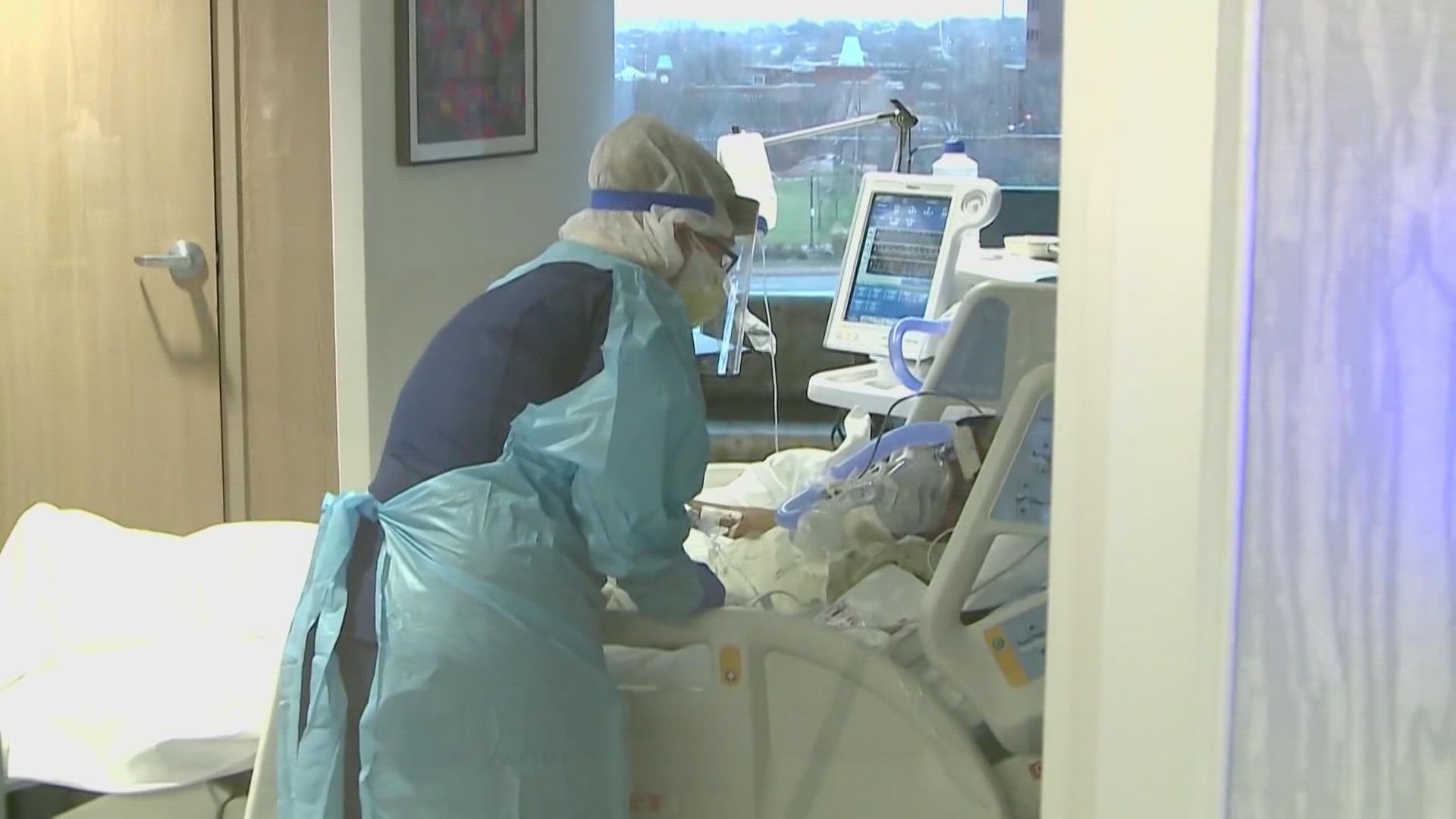SAN ANTONIO — The number of San Antonio area residents receiving COVID-19 treatment in a local hospital increased almost 80 percent in the last month.
State data indicates 357 patients were hospitalized in the region on July 21, up from 199 on June 21.
People with coronavirus currently occupy roughly 10 percent of the region's staffed inpatient beds.
"There's a tremendous amount of COVID out there right now," said Dr. Michael Almaleh, a WellMed cardiologist.
But Almaleh contends current hospitalization trends are moderate, given how fast Omicron's latest subvariant spreads.
"I think that we're all relatively comfortable with the fact that we're at a pretty significant point in this summer wave... and the curves haven't kind of spiked as they had previously," he said.
Almaleh says the proportionally-low hospitalization rate demonstrates more San Antonio residents have acquired some immunity to COVID-19, either from a prior infection or the vaccine.
Still, the uptick in patients with the disease comes at an unfortunate time.
Hospitals are typically busiest in the summer months. Texas clinics are also treating more people for heat-related illness.
These additional patients are seeking treatment inside somewhat understaffed facilities, Almaleh adds.
"We had a very significant exodus of health care workers... during this pandemic," he noted.
Medical groups across the country have lamented a nursing shortage, especially during the latest wave of Coronavirus infections. Burnout is among the top reasons health care professionals are seeking other jobs, experts say.
"I don't think it's a crisis, but it's definitely a challenge," Almaleh said.
Fortunately, nationwide data from the Centers for Disease Control indicates COVID-19's spread may have plateaued. Nationwide, scientists are finding gradually smaller amounts of SARS-CoV-2 in wastewater samples.
Almaleh says Texans should still take the virus seriously so at-risk neighbors aren't infected.
"Our focus has to be on preventing severe disease," he said. "Our most vulnerable population deserves to be protected."

